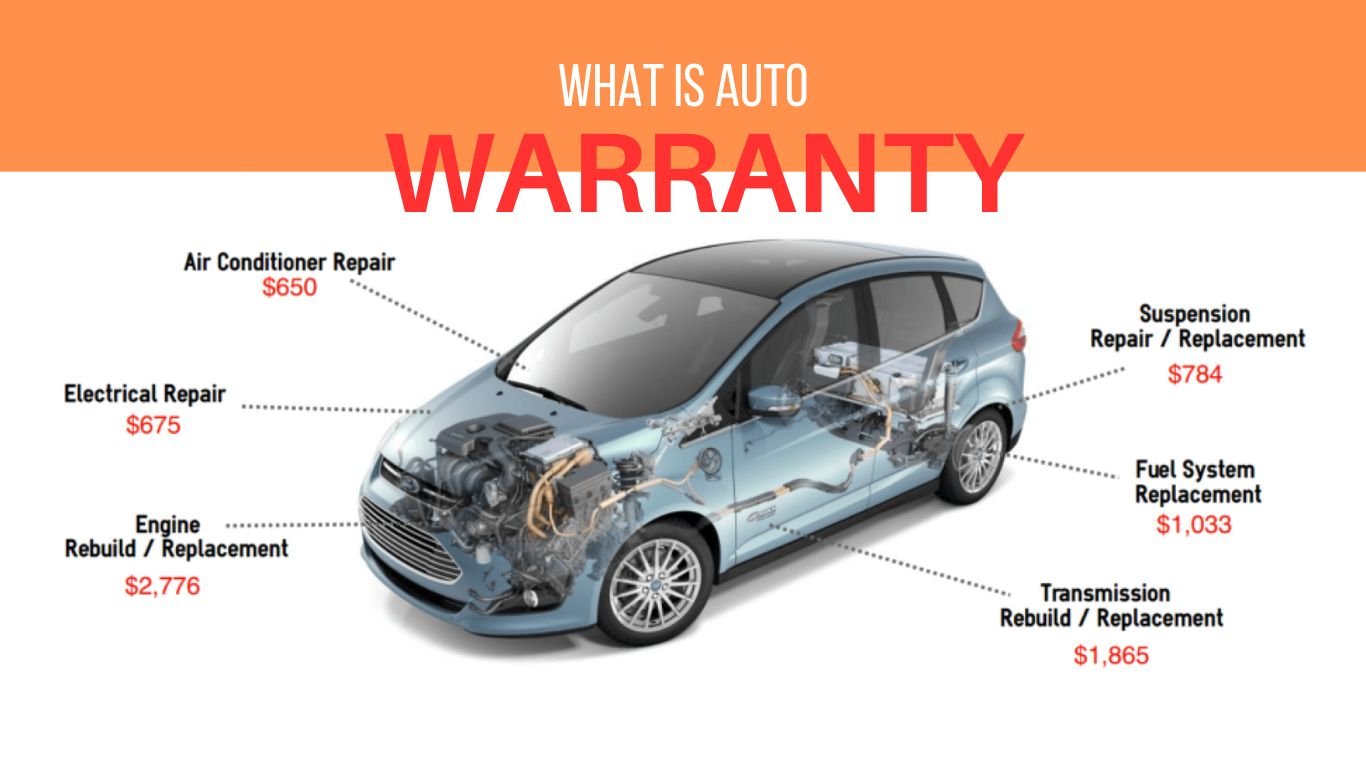58 Worcester St, West Springfield MA 01089, United States
58 Worcester St, West Springfield MA 01089, United States

In today’s world, owning a car has become more than just a luxury. It has evolved into a necessity for many, making it crucial for individuals to understand the various aspects of owning and maintaining their vehicles. One key aspect that every car owner should be aware of is auto warranty – an important element that can significantly impact your overall car ownership experience.
We’ll take a closer look at what a auto warranty is, the different types of warranties available to car-owners, and the benefits that come along with it. The goal is to help you make informed decisions when purchasing a vehicle or considering additional protection plans.

When it comes to purchasing a vehicle, one of the key factors that potential buyers should consider is the type of auto warranty that accompanies their new ride. There are two main types of warranties that car owners should be aware of: Manufacturer and Aftermarket warranties.
Manufacturer warranties are provided by the vehicle’s original manufacturer and are typically included with the purchase of a new car. These warranties usually cover a specific period of time or a set number of miles and provide protection against defects and malfunctions originating from the factory.
On the other hand, aftermarket warranties, also known as extended warranties or vehicle service contracts, are offered by third-party providers like DriveSmart Warranty. These warranties can cover a broader range of potential issues and can be customized to suit the unique needs of the car owner. Aftermarket warranties may also be purchased for used vehicles, adding an extra layer of protection and peace of mind to the ownership experience.

When it comes to warranty auto coverage, understanding the inclusions and exclusions is crucial in order to fully utilize the protection plan. Let’s dive into what is typically covered under a standard warranty.
Most warranty auto plans cover the essential components of your vehicle, also known as the “powertrain.” This includes the engine, transmission, and drive axle. Furthermore, comprehensive warranties may also cover electrical systems, brakes, steering, suspension, and air conditioning.
However, it’s important to note that warranties typically do not cover wear and tear items such as wiper blades, tires, brake pads, and batteries. Additionally, routine maintenance services like oil changes and tire rotations are not part of a warranty auto plan.
Always read the terms and conditions of your specific warranty policy to understand the exact coverage it provides. Remember, a well-maintained vehicle is less likely to require costly repairs, and understanding your warranty coverage can save you money and headaches down the road.

When determining the worth of an auto warranty, it’s essential to consider two key factors: the duration of coverage in terms of mileage and timeframe. Getting to know these aspects helps in understanding the extent to which a vehicle protection plan protects your car and the investment made.
Firstly, let’s talk about the mileage component. Extended auto warranties often cover a specified number of miles or distance traveled. Higher mileage coverage is preferred, as it ensures your car stays protected for a more considerable amount of time on the road.
Next, we have the timeframe factor. This is the period your vehicle will be under warranty, usually expressed in years. Depending on the plan, some warranties last for two, three, or even more years. It’s crucial to understand how long this coverage lasts, as it directly impacts the peace of mind you experience while driving.
Together, these factors help you evaluate the overall effectiveness of an auto warranty and make an informed decision about your vehicle’s protection.
When considering a warranty auto, it’s essential to be aware of the limitations and restrictions that come with it. Remember that every warranty provider and plan is different; thus, carefully review your contract.
Firstly, mileage and time restrictions are common, so bear in mind the covered period before your plan expires. Additionally, not all components of your vehicle may be protected, making it essential to know which parts are included.
Some warranties require you to use authorized repair shops, limiting your options for car repair. Before agreeing to any warranty, make sure you’re okay with their authorized service facilities.
Lastly, keep up with your vehicle’s maintenance and service schedule. Many warranties can be voided if you fail to follow the manufacturer’s recommended maintenance plan. By being aware of these limitations, you’ll make an informed decision when selecting the right warranty auto plan to suit your needs.
An extended warranty, often referred to as a vehicle service contract, provides additional coverage for your vehicle beyond the manufacturer’s warranty. It can cover unexpected repairs and potential breakdowns, providing peace of mind for car owners. But, it begs the question – is it worth the investment?
Extended warranties can be a worthwhile investment, particularly for vehicles known to have expensive parts or costly repair histories. By securing an extended warranty, you essentially cap the potential repair cost for a specific period, protecting your wallet against unexpected expenses.
However, it’s also essential to consider factors like the age of your vehicle, its current state, and the cost of the coverage itself. If you’re driving an older car prone to frequent repairs, it’s crucial to weigh the costs vs. potential benefits of extended coverage, as it may be more cost-effective to invest in a newer, more reliable vehicle.
Always be sure to review the details of any extended warranty, paying close attention to repair coverage, term limits, and any potential deductibles. Remember, an informed decision is a smart decision.

Keeping your warranty valid may seem like a daunting task, but it’s actually quite simple if you follow the maintenance requirements outlined by your vehicle’s manufacturer. Regular maintenance is not only essential for the longevity and performance of your vehicle but it’s also a requirement for keeping your auto warranty intact.
For starters, ensure that you adhere to the manufacturer’s recommended service schedule. This typically includes routine oil changes, tire rotations, and other key maintenance items. Additionally, make sure to keep accurate and detailed records of all service completed on your vehicle. This documentation will not only help trace the repair history but also be crucial in proving your adherence to the maintenance requirements in case of any warranty claims.
Ignoring these essential maintenance requirements may lead to the denial of a warranty claim, which could leave you with out-of-pocket expenses for costly repairs. Remember, properly maintaining your vehicle is not only good for its overall health but also protects your investment and keeps your warranty valid.
When considering a warranty for your automobile, it’s essential to fully understand the pricing and payment options available. DriveSmart Warranty offers various comprehensive plans that cater to diverse budgets and vehicle protection requirements.
First and foremost, the overall cost of a warranty will depend on factors such as the make, model, age, and mileage of your car. Generally speaking, plans with more extended coverage will be more expensive.
Moreover, DriveSmart Warranty provides flexible payment options for our customers. Instead of a large lump sum payment, you have the option to pay in smaller installments. This allows you to choose a plan that best suits your financial situation without compromising on vehicle protection.
In addition to flexible payment options, DriveSmart Warranty offers a wide range of discounts and promotions for our customers. Don’t hesitate to ask about these special offers when you contact our customer service team.
With a better understanding of pricing and payment options, you can confidently choose the best protection plan for your vehicle.

Making a claim for a car repair under your warranty can be a seamless process if you follow the proper steps. First, consult your warranty agreement to verify the coverage for the necessary repair. This will help you avoid any surprises during the process.
Next, find an authorized repair facility. Often, your warranty provider will have a list of approved mechanics or dealerships where you can take your vehicle. Contact the repair facility to schedule your appointment and inform them that your repair will be under warranty.
Before any work is done, ensure the repair facility contacts your warranty provider for authorization. This guarantees that the repair is covered and the provider will be billed accordingly.
Finally, when the repair is completed, review the final invoice to confirm that it aligns with your warranty coverage, and pay any applicable deductible or fees. With these steps, getting your car repaired under warranty will be a smooth and worry-free experience.
Copyright © 2023 US Warranty. All Rights Reserved.